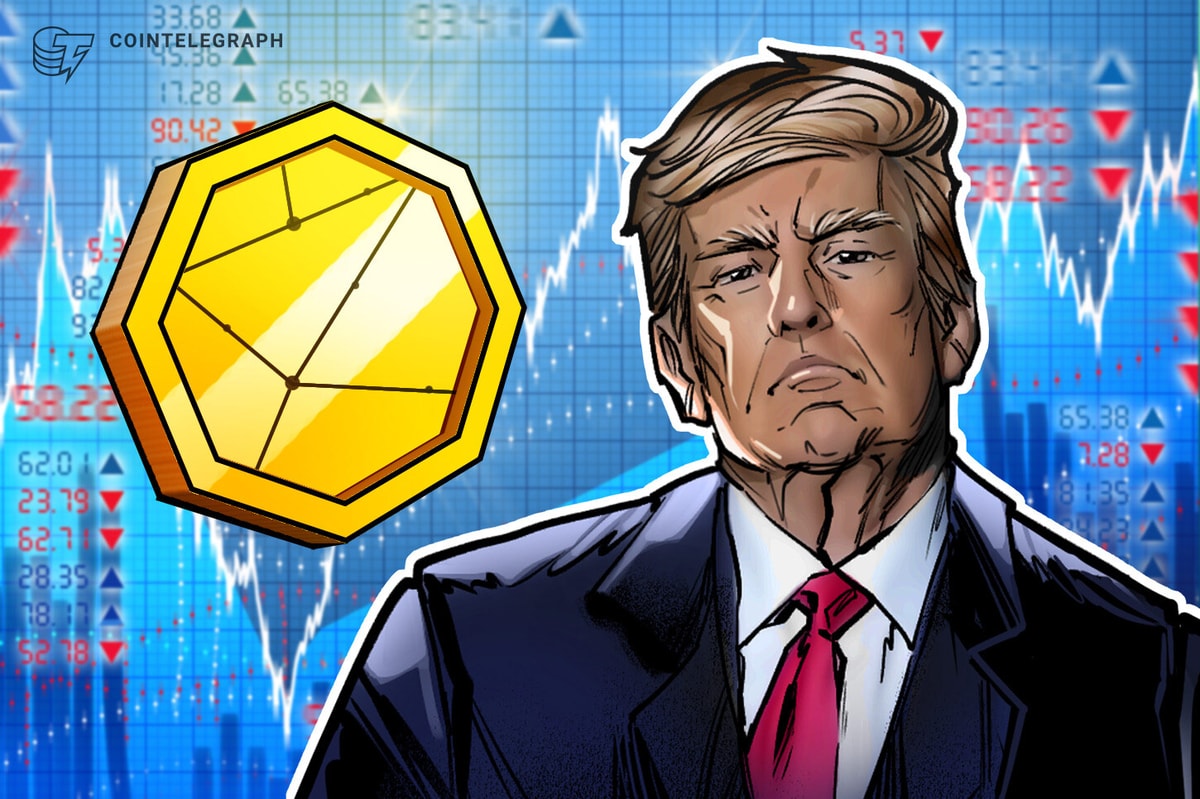The first 100 days of the administration of US President Donald Trump have deeply impacted the crypto industry, starting with his own memecoin and cul
The first 100 days of the administration of US President Donald Trump have deeply impacted the crypto industry, starting with his own memecoin and culminating in a Bitcoin reserve and a spate of blockchain policymaking.
Trump’s trade war with the entire world has had the largest short-term impact on crypto markets, as crypto prices have wavered amid macroeconomic worry and uncertainty. Higher prices on electronics mean Bitcoin (BTC) miners are finding it harder to break even, and de-dollarization concerns abound.
Still, crypto markets have shown some resilience and cause for optimism in the administration’s crypto-friendly policies. A number of pro-crypto leaders have been appointed to key government agencies, including the Securities and Exchange Commission and the Commodity Futures Trading Commission (CFTC). The crypto industry’s long-awaited regulatory framework is also imminent.
Trump’s first 100 days have seen remarkable changes for the crypto industry, and it appears that things are only getting started. Here’s a look at what’s happened so far.
Jan. 20 — Trump’s first 100 days kick off with a memecoin
On Jan. 20, while Trump was sworn into office in the rotunda of the Capitol Building, his family’s crypto investment firm, World Liberty Financial (WLFI), launched its second token sale of WLFI tokens.
Massive demand saw prices initially spike, though the true value of the tokens, if any, is yet to be determined, as WLFI is currently not transferable and cannot be traded on any exchanges.
The memecoin served as a kickoff for Trump’s crypto agenda, which has seen unprecedented support for the industry in Washington, DC, along with a slew of moral and ethical concerns among observers and lawmakers.
Related: Trump’s WLFI crypto investments aren’t paying off
Jan. 20 — Pro-crypto leaders head up federal agencies on “day one”
The president of the US sets the tone for several federal regulators, including those overseeing crypto. Trump immediately set out to appoint a number of pro-crypto lawyers and businessmen to head up the SEC, the CFTC and other critical federal agencies.
Trump nominated businessman Paul Atkins to lead the SEC on “day one” of his presidency. Atkins would replace Gary Gensler, who was perceived by many in the crypto industry as an enemy to adoption and the industry’s progress.
Also on day one, Trump appointed businessman and crypto investor David Sacks as chair of the President’s Council of Advisors on Science and Technology — or the crypto and AI “czar.”
Atkins wouldn’t be confirmed by the Senate until April 9 and sworn in on April 21. But in the meantime, Trump also tapped former CFTC Commissioner and crypto proponent Brian Quintenz to head up that agency.
Jan. 21 — $500-billion Stargate AI initiative
In a press conference, Trump announced a $500-billion private-led AI infrastructure investment called “Stargate.” The president claimed the project — led by ChatGPT creator OpenAI, SoftBank and Oracle — would create some 10,000 American jobs.
Trump said the US needed to lead the world in AI innovation and keep development onshore. “China is a competitor, others are competitors. We want it to be in this country, and we’re making it available,” he said.
OpenAI claimed that the project would “not only support the re-industrialization of the United States but also provide a strategic capability to protect the national security of America and its allies.”
Jan. 21 — Pardon for Silk Road founder Ross Ulbricht
Trump announced on Truth Social that he had called the family of Silk Road 2.0 founder Ross Ulbricht after commuting his sentence.
After his arrest in 2013, Ulbricht was sentenced to life in prison in 2015 without the possibility of parole for his role in facilitating the trafficking of narcotics and other illicit substances.
Ulbricht’s case became a rallying point for libertarian movements and prison reform advocates alike. Libertarian-minded crypto advocates supported Ulbricht, as his platform was one of the first places people could actually spend Bitcoin.
Freeing Ulbricht was one of the many campaign promises Trump made to the crypto community.
Jan. 23 — Ban on digital dollar, establishing a crypto working group
With an executive order, Trump established an internal working group to focus on making the US “the world capital in crypto.” The order also prohibited “the establishment, issuance, circulation, and use” of a US central bank digital currency (CBDC).
CBDCs are a contentious issue in the crypto community, with many privacy activists claiming that they are another form of state surveillance and government control. Enthusiasm over their creation from central bankers has further set the more libertarian-minded crypto community against their…
cointelegraph.com
